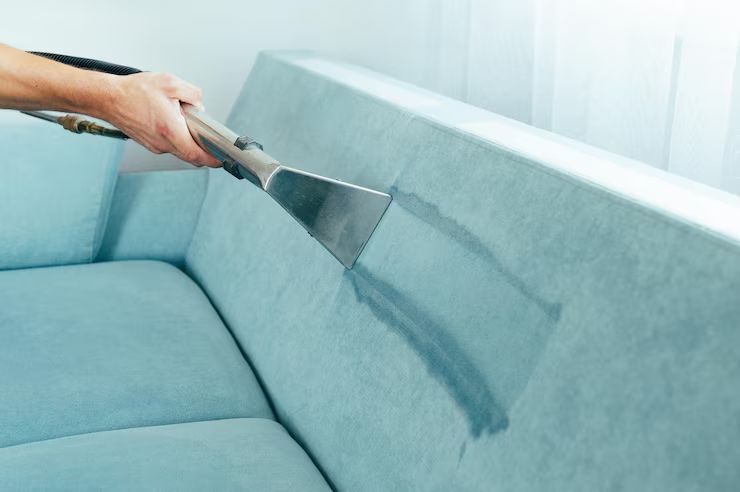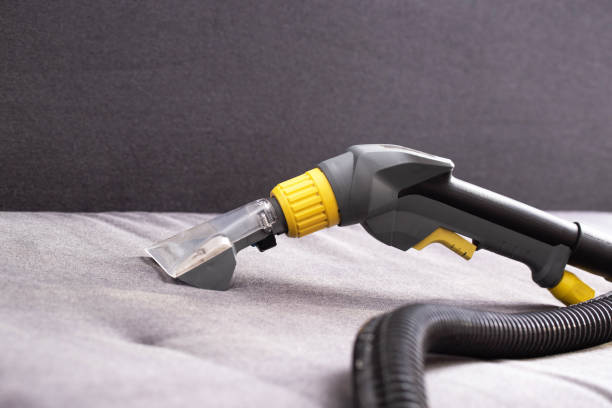Upholstery gives character, comfort, and style to our living spaces—but it also absorbs a shocking amount of dirt, allergens, oils, and spills. If you want your furniture to look pristine and last longer, routine cleaning and smart maintenance are essential.
In this powerful, in-depth guide, we’ll walk you through 10 expertly crafted steps (and pro tips) to clean and maintain all kinds of upholstered furniture—from your velvet accent chair to the microfiber family sofa.

Step 1: Know Your Upholstery Type
Different fabrics require different care. Before you reach for a cleaner, check the manufacturer’s tag:
- W: Safe to clean with water-based products
- S: Use solvent-based cleaners only
- WS: Water or solvent-based cleaners are fine
- X: Vacuum only—no liquid
Common upholstery types:
- Fabric (cotton, linen, polyester)
- Microfiber
- Velvet
- Leather
- Faux leather (PU, PVC)
- Chenille and wool blends
Step 2: Vacuum Regularly (Your First Line of Defense)
Vacuum your upholstered furniture once a week using the upholstery attachment. This removes dust, crumbs, pet hair, and debris that dull fabric and wear down fibers.

Pro Tips:
- Use a crevice tool for tight seams and corners
- Use a lint roller for stubborn hair or fuzz
- Don’t forget under the cushions
Step 3: Spot Clean Spills Immediately
The longer a spill sits, the harder it is to remove. As soon as something hits your upholstery:
- Blot it—never rub
- Use a clean, dry cloth to absorb liquid
- Apply the right cleaner (based on your fabric tag)
DIY Spot Cleaner for Fabric:
- 1 cup warm water
- 1 tbsp dish soap
- 2 tbsp white vinegar
Spray and blot. Repeat as needed.
Step 4: Deep Clean Seasonally
Even if your furniture looks clean, dirt, oil, and allergens build up over time. Deep clean every 3–6 months:
For Fabric Upholstery:
- Use a steam cleaner or rent an upholstery cleaner
- Always pre-vacuum
- Use a low-moisture method for drying
For Microfiber:
- Use rubbing alcohol in a spray bottle
- Scrub with a white sponge or soft brush
- Let dry, then fluff with a bristle brush
For Leather:
- Wipe with a damp cloth
- Use leather cleaner and conditioner
- Buff with a dry microfiber cloth
Step 5: Use the Right Cleaning Products
Best Products for Upholstery Cleaning:
- Bissell Upholstery Shampoo – gentle and effective
- Folex Instant Carpet Spot Remover – great on fabric
- Rocco & Roxie Stain & Odor Eliminator – pet-friendly
- Chemical Guys Leather Cleaner + Conditioner
- Woolite Advanced Fabric & Upholstery Cleaner
Always test in an inconspicuous spot first!
Step 6: Tackle Common Upholstery Problems
Odors
- Sprinkle baking soda over cushions
- Let sit 30 minutes
- Vacuum thoroughly
Grease or Body Oil
- Use cornstarch or baby powder to absorb oils
- Let sit overnight
- Vacuum and treat with a solvent if needed
Mildew
- Mix equal parts rubbing alcohol and water
- Wipe affected area
- Dry in sunlight or with a fan
Ink Stains
- Dab with rubbing alcohol or acetone
- Use cotton swabs to avoid spreading
Step 7: Maintain and Rotate Cushions
Rotating your cushions helps them wear evenly and prevents sagging.
Tips:
- Rotate cushions weekly
- Flip if they’re double-sided
- Beat out dust outdoors once a month
Step 8: Use Protective Measures
An ounce of prevention equals pounds of less cleaning. Protect your upholstery with:
- Slipcovers: Especially for high-traffic furniture
- Fabric protection sprays (like Scotchgard)
- Throw blankets: For daily use on seating areas
- Pet covers: For homes with furry friends
Step 9: Know When to Call the Pros
Sometimes, it’s better (and safer) to hire professional upholstery cleaners:
- If your piece is vintage or antique
- If it’s labeled “X” (vacuum only)
- If stains are stubborn and set-in
- If you’re unsure of the material
Pro Services Often Include:
- Steam cleaning or hot water extraction
- Enzyme treatments for odors
- Color-safe stain removal
- UV sanitization (in some services)
Step 10: Schedule a Maintenance Routine
Consistency is key. Create a routine that balances regular care and deep cleaning:
Weekly:
- Vacuum
- Fluff cushions
- Spot clean new stains
Monthly:
- Deodorize with baking soda
- Rotate cushions
Seasonally:
- Deep clean upholstery
- Inspect for repairs (tears, fading)
Annually:
- Professional cleaning (if needed)
- Apply new fabric protection
Bonus Section: Upholstery Cleaning by Room Type
Living Room:
- Most used: requires weekly upkeep
- Consider adding washable slipcovers
Bedroom Chairs/Headboards:
- Dust and vacuum monthly
- Spot clean makeup, oils, or hair products
Dining Chairs:
- Wipe spills immediately
- Use Scotchgard to repel food stains
Office Chairs:
- Vacuum armrests and back
- Clean sweat marks or ink stains as they occur
FAQs: Upholstery Cleaning
Can I steam clean all upholstery?
No. Only use steam on W or WS coded fabrics.
How do I remove pet odors from upholstery?
Use baking soda + enzyme spray, or a vinegar solution. Vacuum well afterward.
Is vinegar safe for all fabrics?
Diluted vinegar is safe for most W and WS fabrics but test a spot first.
What should I never use on upholstery?
Avoid bleach, abrasive brushes, and soaking your fabric.
Conclusion: Upholstery That Lasts a Lifetime
Upholstered furniture is an investment, and like any investment, it needs care. By following this 10-step guide, you’ll not only keep your home cleaner—you’ll extend the life, look, and comfort of every seat, sofa, and cushion in your space.
With consistent vacuuming, spot treating, deep cleaning, and protective measures, your upholstery can remain fresh, fabulous, and functional for years. Don’t wait for stains to settle—get proactive, and your future self (and your furniture) will thank you.
